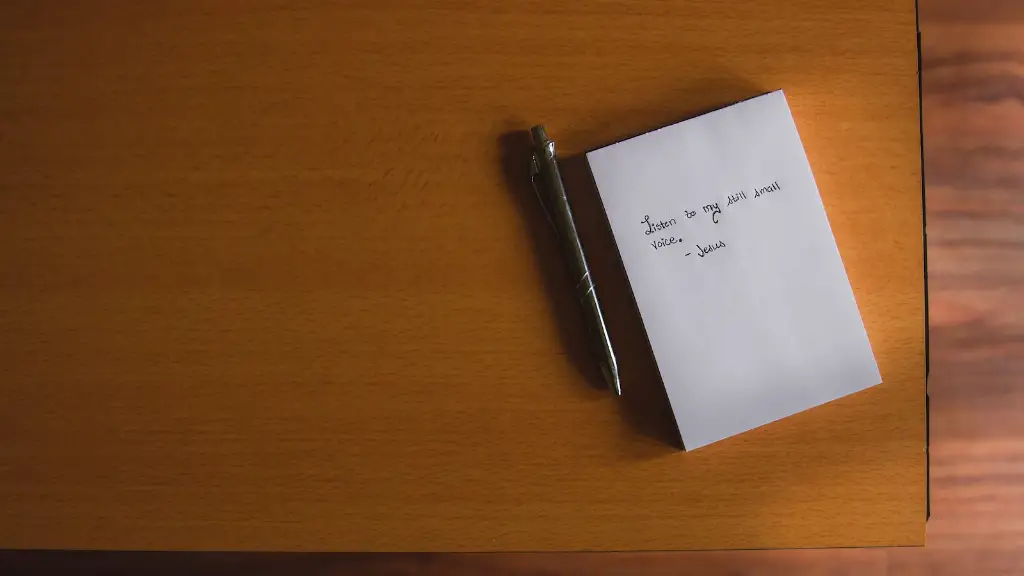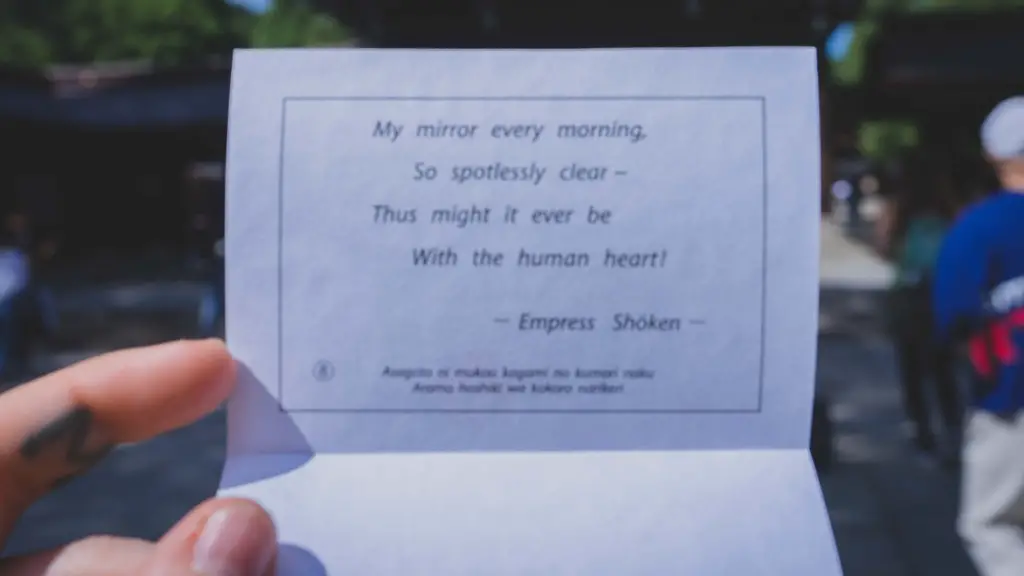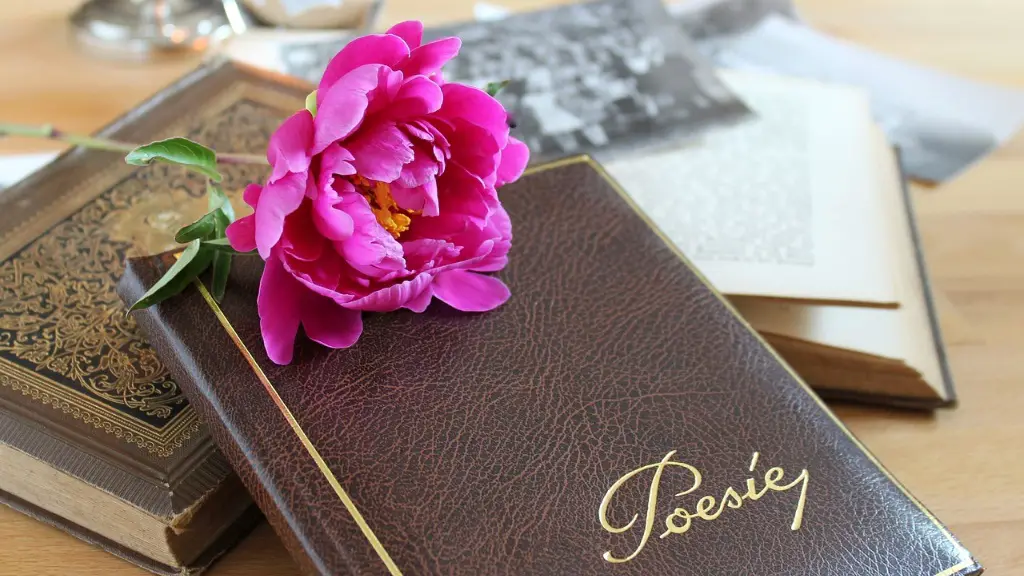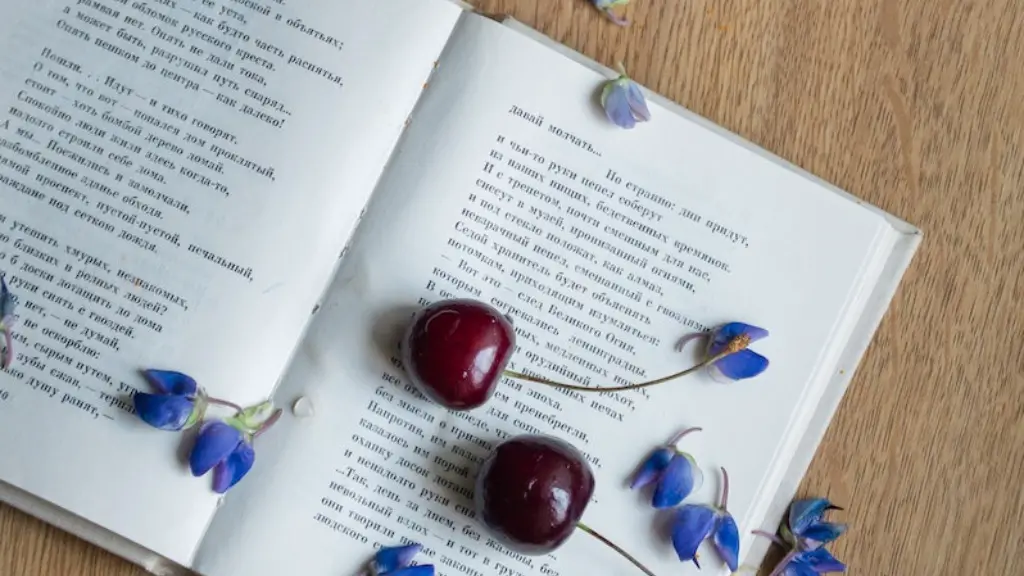The Definition of Metrical Poetry
Metrical poetry is a type of poetry which utilizes a specific form of structure and meter in its composition. This particular type of poetry has been present for centuries, in some form or another, and is considered by many to be the foundation of all poetry. A metric poem relies on a certain number of syllables and feet that must be met in order to maintain a certain poetic form. The length and structure of a metric poem can vary from poet to poet.
The term “metrical poetry” is also used to refer to poetry that follows strict rules regarding the number of syllables in each line, the placement of stresses throughout the poem, as well as other specific details associated with that particular poem.
The Forms of Metrical Poetry
Metrical poetry is composed in a variety of forms and structures. Some of the most common forms include: Blank Verse,Iambic Pentameter, Haiku, Free Verse, and Ode. Each of these forms has its own unique characteristics that make it distinct from the other forms.
In the case of Blank Verse, the lines typically consist of an even number of syllables and the stresses are placed in an alternating pattern. Iambic Pentameter is a form of poetry in which the lines consist of five sets of two syllables, typically with an unstressed syllable followed by a stressed syllable. Haiku is a form of Japanese poetry that usually consists of three lines with five syllables each. Free Verse is an unstructured form of poetry with no set syllabic pattern or structure. Odes often have a formal structure and utilize a complex rhyme scheme.
Historical Significance of Metrical Poetry
The origins of metrical poetry can be traced back centuries to when poets first began using some sort of structured form to their poetry. This particular type of poetry is often seen as a “classical” style of writing that can be found in ancient works of literature.
The beauty and structure of metrical poetry has inspired countless poets throughout the centuries. In modern times, many poets find that this type of poetry offers them a lofty challenge as they attempt to compose poems within the rigid framework.
The strongest works of metrical poetry have been some of the most memorable works in literature. Poems like Shakespeare’s Sonnet 18, and Keats’ La Belle Dame Sans Merci are some of the most renowned works in the world and have been studied by poets and scholars alike.
How to Create Metrical Poetry
Creating metrical poetry can be a daunting task for new writers, as they must adhere to the specific guidelines and rules of form. In order to create a successful poem, poets need to have a firm understanding of meter, rhythm, and syllable structure.
The best way to learn how to create metrical poetry is to study the existing work of other poets. Take the time to read and analyze their poems and the structure that was utilized in order to create the desired effect. By studying successful works, aspiring poets can gain a better understanding of how the pieces were composed and how different elements interact with one another.
The Benefits of Writing Metrical Poetry
Metrical poetry is often seen as a more challenging form of poetry than traditional free verse, and as such it is often seen as being a more rewarding experience for the poet. Not only do poets gain the satisfaction of creating a successful piece of poetry, but they also learn a variety of techniques and skills in the process.
Creating poetry within the boundaries of meter and form can force poets to think more creatively, as they have to find a way to make their words work within the confines of the structure. It is an excellent way to learn how to express oneself more eloquently and accurately, as the structure of the poem often dictates the message.
Exploring Metrical Poetry through Workshops
There are plenty of workshops and classes available to those who are interested in exploring metrical poetry. Attending a workshop can be an invaluable resource for poets who are looking to better understand metrical poetry and the various forms that it comes in. Experienced poets can lead various classes and workshops, sharing their knowledge and interpretations of existing works to other aspiring poets.
Individuals can also explore metrical poetry by reading a variety of books and articles written by experts in the field. Examining the writings of skilled authors can provide valuable insight into the craft of writing metrical poetry, as well as tips and tricks for creating successful works.
The Present Day Relevance of Metrical Poetry
Metrical poetry is still a popular and vibrant form of writing in the present day. Many contemporary poets create works of metrical poetry, with many poets utilizing old, established forms as well as developing new and innovative ones.
The immense popularity of the form can also be attributed to the challenges and intricacies that come with it. Not only can poets learn many of the techniques associated with it, they can also express themselves and their experiences in a truly unique and poetic way.
Reimagining Traditional Forms of Metrical Poetry
Modern poets often seek to challenge the existing forms and conventions of metrical poetry. This can be done by experimenting with literature and modifying traditional poetry forms to create something that is entirely unique.
This type of reimagining of metrical poetry can be immensely rewarding for the poet. Not only do they challenge and expand upon their skill set and creativity, but they also have the opportunity to create something that is truly special.
Going Beyond Conventions in Metrical Poetry
Poetry often has the capacity to explore ideas and concepts that have little to do with the traditional conventions of metrical poetry. Poets can use the structure of metrical poetry to express new ideas and concepts, enabling them to create something that is truly unique.
Modern poets should consider embracing different ideas and concepts, as long as they are willing to utilize metrical poetry in a creative manner. By incorporating new ideas and concepts, poets can further enhance their writing and move beyond the confines of traditional metrical poetry.
Variations of Metrical Poetry
Metrical poetry can be composed in a variety of ways, often using different forms and conventions depending on the subject and the poetic intent. Variations of metric poetry can be found in traditional forms such as Sonnets and ballads, as well as more modern forms like Hip Hop, Rap and Spoken Word.
The variations of metrical poetry often provide poets with the opportunity to develop their own style and interpretations. By embracing different forms and conventions, poets can create works that are truly unique and capture the message that they are trying to convey.
Exploring the Themes of Metrical Poetry
The themes associated with metrical poetry can be incredibly vast and varied. Artists can explore a range of topics, from love and loss to political and social issues. By embracing and exploring different themes, poets can create works which can move and touch the reader.
Modern poets should consider the various themes that can be explored in metrical poetry. Through incorporating this type of exploration, modern poets can craft works that are powerful and captivating.
Challenges Faced by Modern Poets in Metrical Poetry
Modern poets often find themselves facing a multitude of challenges when writing metrical poetry. On one hand, they must adhere to the conventions of metrical poetry and the structure of the poem itself. On the other hand, they must also ensure that the message of the poem is conveyed correctly and clearly.
Poets should confront these challenges with enthusiasm and creativity. By utilizing their skills and techniques in a novel manner, they can create works of metrical poetry that have the power to move and inspire their readers.



